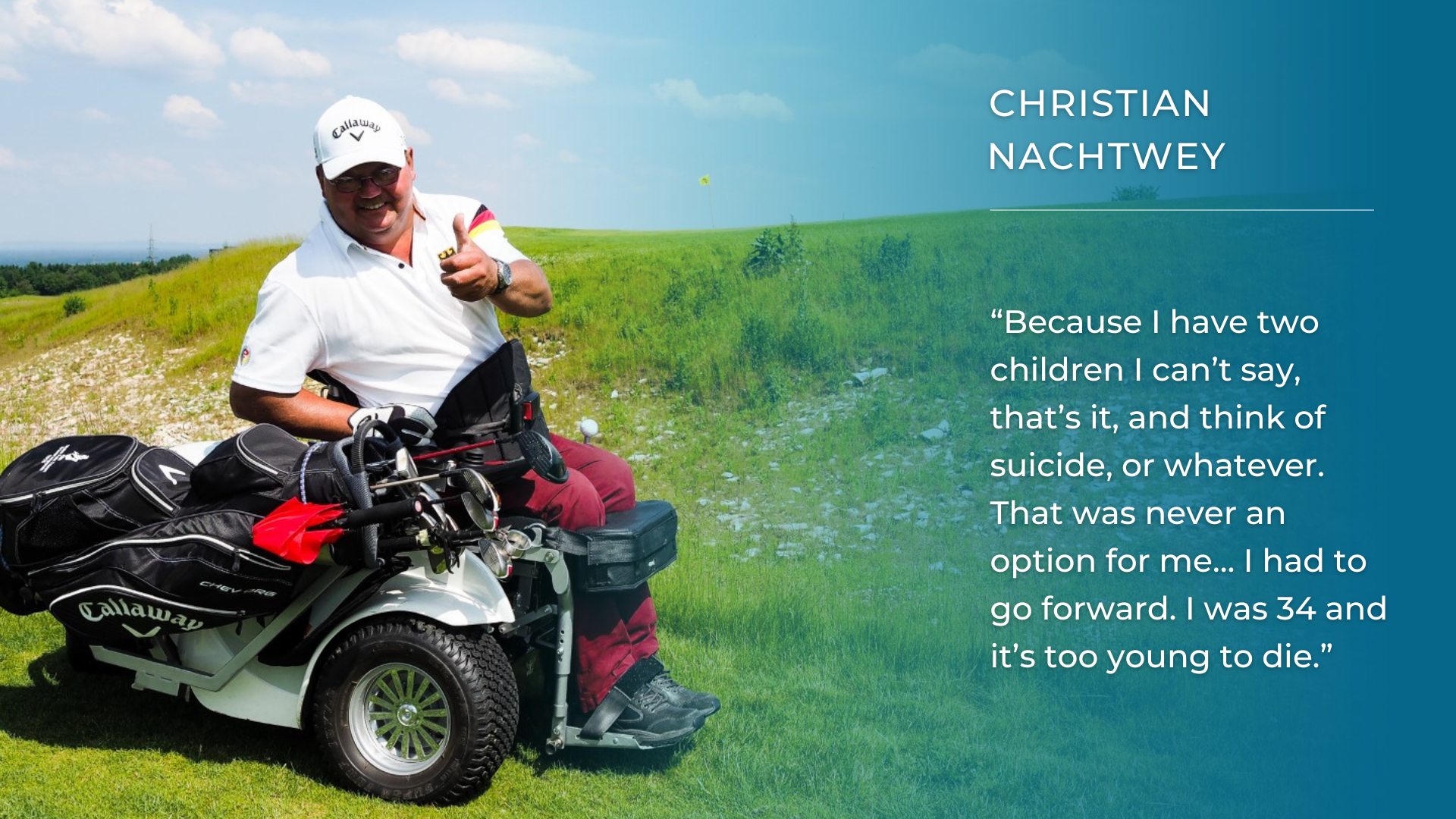Audio:
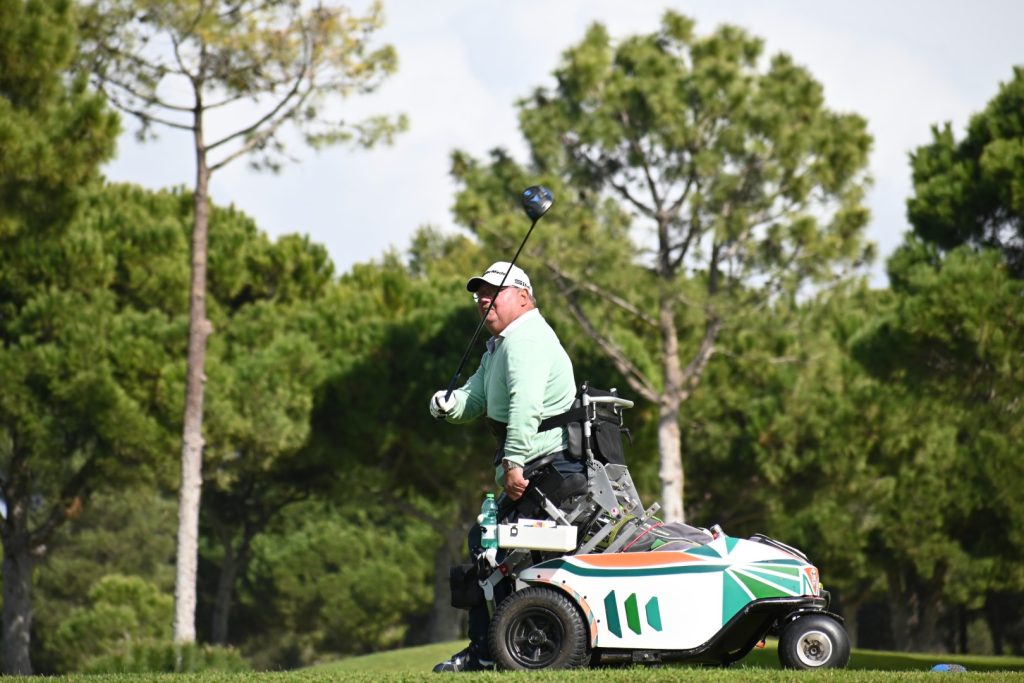
People who make things out of wood are artisans first, but many are engineers, artists, and some are even game changers for the modern world.
One day a German carpenter had the creative foresight to envisage a wheelchair-based powered machine, which would become the ‘ParaGolfer’, and he built his early models out of wood. His ingenuity would transform the lives of a great many people who were previously not able to stand, walk or swing a club easily, instead enabling them to thrive out on the golf course, offering them the learning of a new skill, competition, exercise, the enjoyment of nature and the chance to make new friends.
The carpenter was Christian Nachtwey, who at 34 years-old owned a successful carpentry and house building company in Bodensee, Germany. When he had his big golfing idea back in 1997, he was running a business with 30 employees, including his three sisters and father. This epiphany arrived while looking at a manual wheelchair which worked in a standing position. Could such a thing be adapted and powered to help a golfer make a good swing and move around the golf course, he wondered?
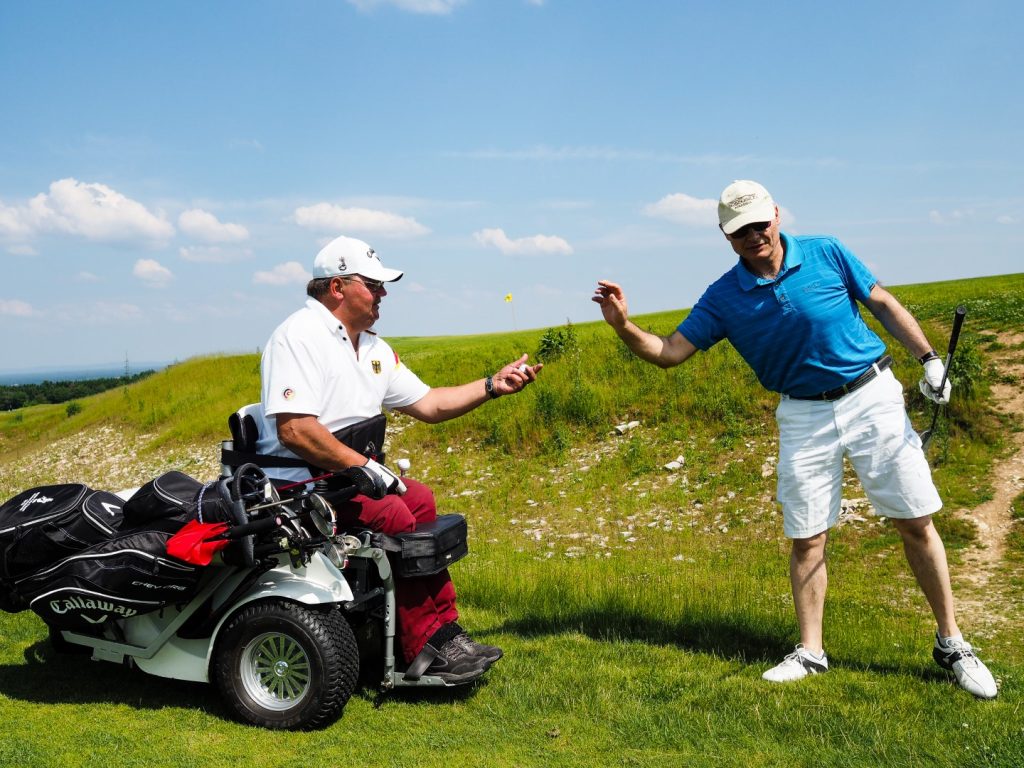
One other factor had to be present in this story of invention. For Christian was looking intently at the manual wheelchair because he needed the assistance it might offer him, having been paralysed from the waist down in a recent motorcycle accident. His subsequent rehabilitation and his determination to stay positive, plus the creativity he drew upon throughout his carpentry career, would come together, perhaps like a dovetail joint, resulting in a second career and the life-changing machine which would help not only Christian but hundreds of others in the same boat.
Back in 1997, Christian had been enjoying the game of golf for three years; he had been one of the first raft of members to sign up at his new golf club, Rittergut Rothenberger Haus, in 1994 (a club he loves and where he is still a member).
One day, “I wanted to go and take a measurement [at a property]. I had an employee who had the same type of motorbike as my racing bike but his was for normal street use. I only had to drive four kilometres to the customer, and I was in a shirt and short trousers. His helmet was too small for my big head. And so I drive to the customer. On the way back, I overtake… And I don’t see that from the other side a car is coming. I am going at 80-90 kilometres per hour, and he also…”
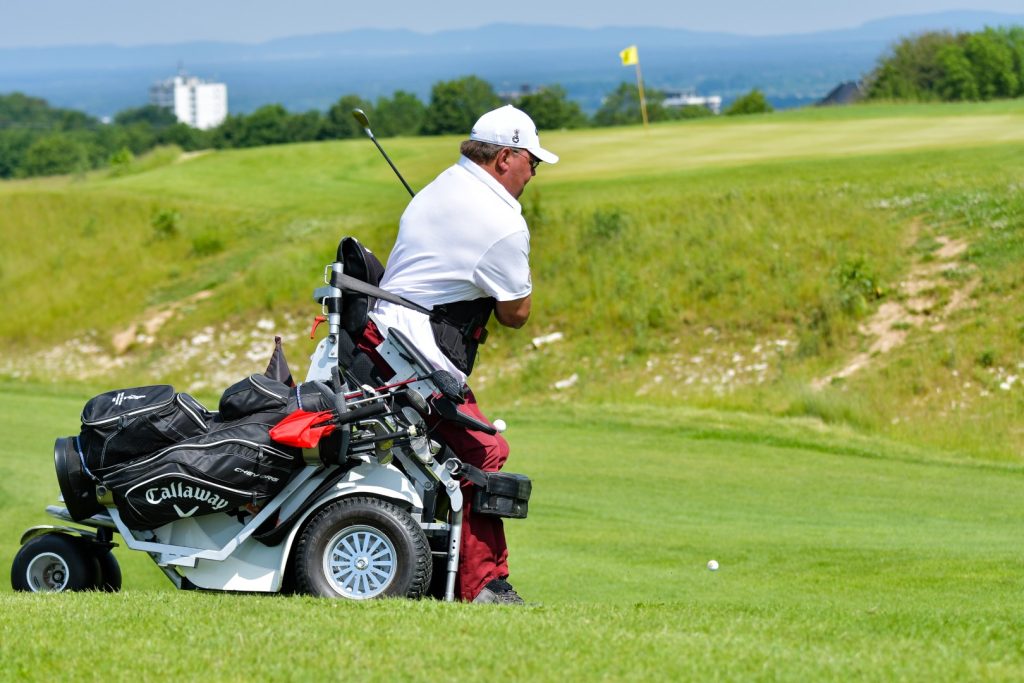
While he was in a coma, Christian says he was declared dead twice. “They bring me back, and the priest was there and gave me the last oil, and all the other things. It was difficult because my aorta was ruptured… So they have the decision, first aorta, or first the back? They make the right decision but then I realised, ‘ok, I can’t walk anymore.’”
Initial anger gave way to immense gratitude to his family, particularly for the selfless efforts of his wife Bettina, and a clear attitude within Christian that he had to do his best for them in return. “Thank God I had my wife, and she did everything. I was about six or seven months in the hospital, and then rehabilitation. She organised everything. She’d drive every second day 100 kilometres to the rehabilitation centre. This was a huge thing she did for me.”
Christian adds: “I looked ahead and said, ‘ok, what can I do? What are my options to build my life at home, what can I do from a wheelchair to go forward?’ Because I have two children I can’t say, that’s it, and think of suicide, or whatever. That was never an option for me… I had to go forward. I was 34 and it’s too young to die.”
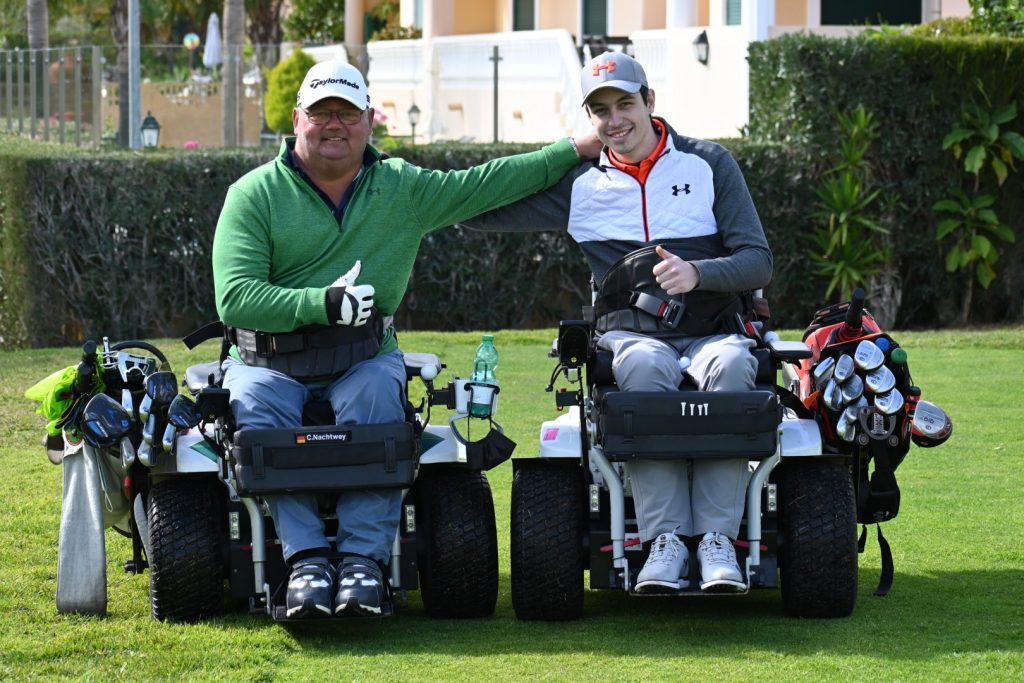
For the next couple of years, step by step improvements would be huge, Christian can remember the pride he felt – which was reflected on the faces of his children – when he could first propel his manual wheelchair alone. One of his arms had been shattered and had to be reconstructed with bones from his chest. Learning to use his arm and find the necessary strength took time.
They say that when life puts you in a wheelchair it can take two years to get your head around the change. Christian was back in charge of the company after six to seven months. “In the first year, you are like a big baby. You can’t do anything and it’s a big step from being the boss of a company to being a wheelchair user. In the supermarket you have to ask an old lady if she can reach a bottle of milk for you from the top shelf.”
Christian recalls that he was told he should forget about golf. “You can go swimming with your wife, or whatever, but golf, it’s impossible.
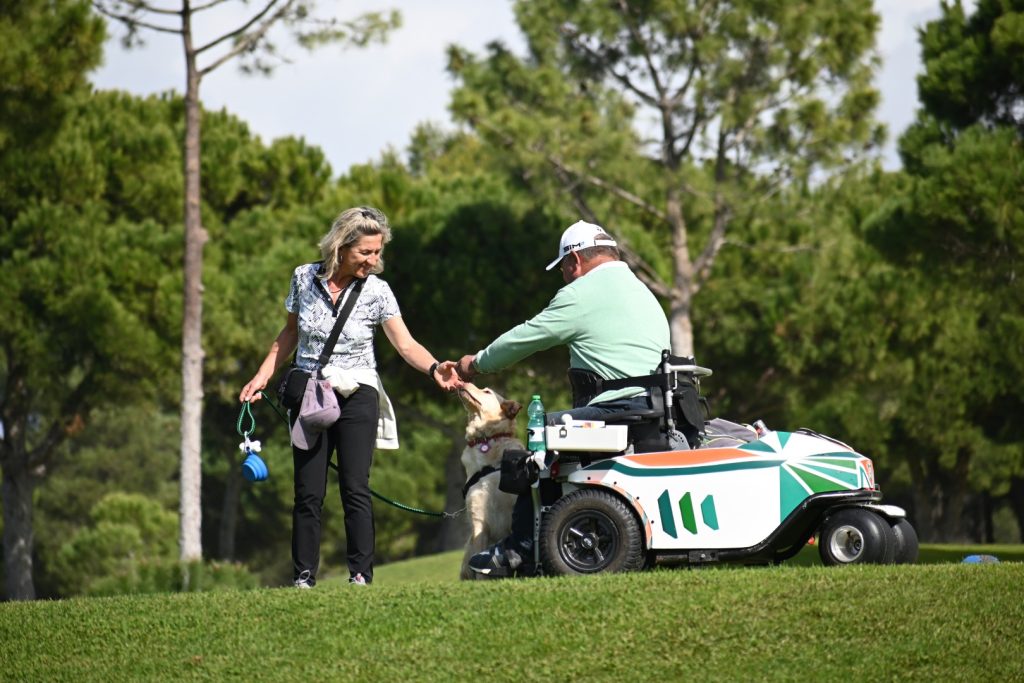
“But then I saw this stand-up wheelchair… It’s a normal wheelchair, and I see that it gives the possibility that you can stand up and play. So, I bought an old electric wheelchair, and I take the stand-up wheelchair: I put them together to see how they could work. And it doesn’t work that well, but the idea to mix the electric wheelchair with the stand-up unit was born.”
Christian began fashioning the early designs out of wood. “I work with wood, it was my passion.… Then I went to a metal welder and said, ‘Can you make it in metal for me?’ At the start I only wanted to make it for me, to go on the golf course. But then I saw it could work.”
He would manage to run his housebuilding business for another five years but without being able to lead from the front with the carpentry it was never the same. Christian took the decision to sell the company, fortunately to two of his trusted employees, who took on the other workers, preserving the jobs.
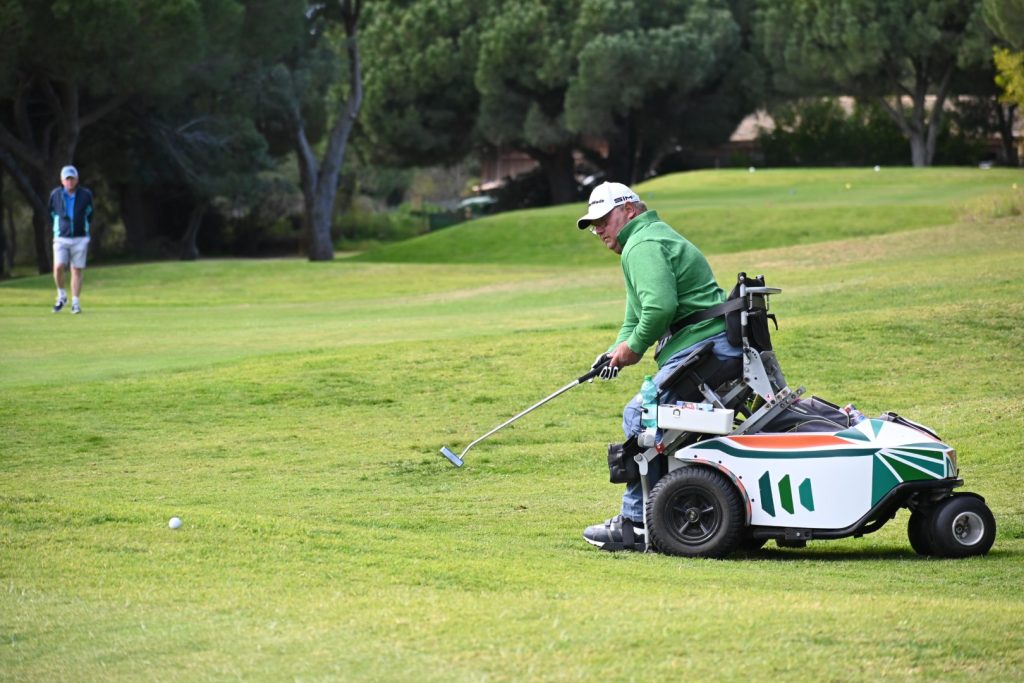
Now for Christian, making the ParaGolfer was fast becoming the new dream. He realised that his idea could also serve many other people in wheelchairs who wanted to play golf or learn golf. He started to build his first machines and then met the South African golf professional Anthony Netto. They shared their experience of playing from a chair, and considered how they could improve every function for a player, to help them reach their golfing potential. The encouragement from Netto was starting to make the new project feel, as Christian says, “grown up.”
Christian was talking with us from where his family spends each winter, in Dénia, on Spain’s east coast between Alicante and Valencia. His home is close to Oliva Nova golf resort, where there are two of his company’s ParaMotion machines; customers often come along to the resort to try them and meet Christian for advice.
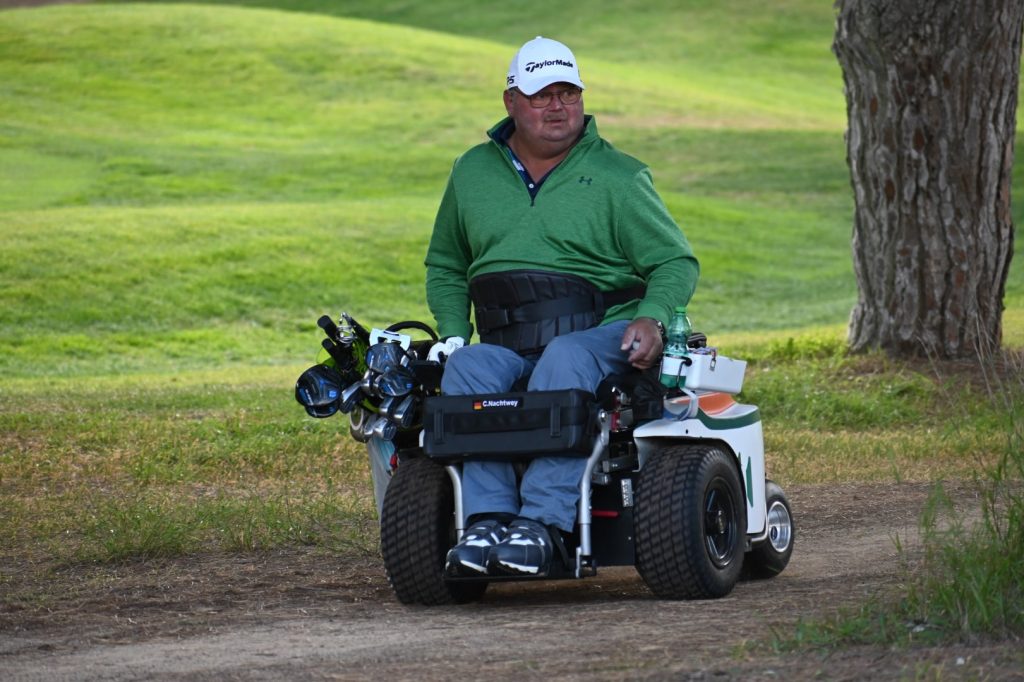
The creativity and effort that Christian put into developing his second career has paid off. He has been successful. Firstly, he designed and built the first 25 ParaGolfer machines by himself. From there it was manufactured in partnership with the large German based orthopedics company Ottobock. While that arrangement ended after a few years Christian continued to receive royalties for every unit sold. Building on his knowledge in forming a new company, PowerBaseTec, in recent years he has manufactured the ParaMotion models. Christian estimates that more than 1,500 people worldwide have benefited from using one of his designed powered machines, either through direct purchase or rental at those progressive golf facilities which offer them to players.
On the PowerBaseTec website, there is an area reserved for ‘Our Heroes’, heralding a range of players who have excelled in competitive golf, including EDGA tournaments. Players like Shlomo Ivgi of Israel, Evandro Bonocchi of Brazil, Jens Maspfuhl and Kirsten Bruhn of Germany, Sebas Lorente of Spain, Urs Bucher of Switzerland and Phil Meadows of England, all make highly positive comments about the quality of the machines and the staff of the family company that has helped them over recent years.
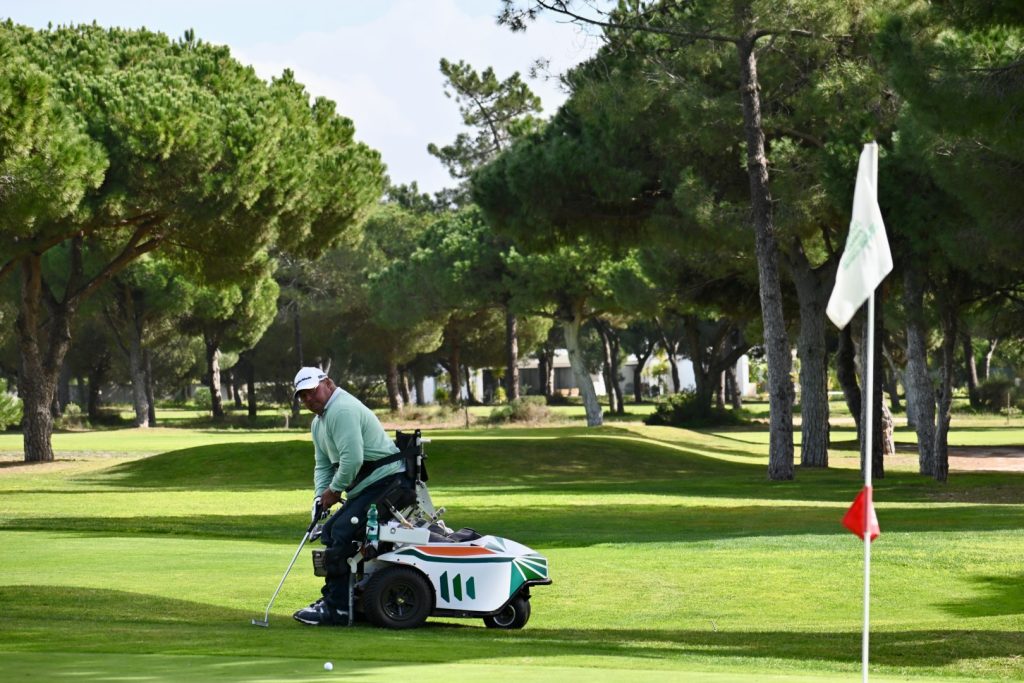
Setting up PowerBaseTec was again a family affair. Today Christian sees himself as an ambassador while his sons Niclas and Jonas are the “chiefs.” In the early years when Christian was attending tournaments and trade fairs he would take the boys, and people in the business got to know them, helping to forge trust today between the firm and its customers. The family helped organise a long-running tournament in Mallorca, the International Wheelchair Golf Open Championships, which helped Niclas and Jonas add to their knowledge about issues around disability at an early age.
Christian has dedicated his second career to helping others to reach their potential through sport. How was he able to help himself after his accident?
This happened 23 years ago from the time of writing, a time when you hardly ever saw a person with a disability on television, in the newspapers, or magazines. It was almost like there was a sense of shame among the public when considering people who were disabled. In 1997, Christian lived in a village with only 800 people, where many suddenly viewed the company boss differently. “It was not so easy to make it clear to them that though I couldn’t walk, that I was [the same] in my brain. They always seemed to think, ‘Oh, I don’t know, after the big accident, it could be that he is also a little bit stupid.’ That was the first experience when I came back from the rehabilitation.
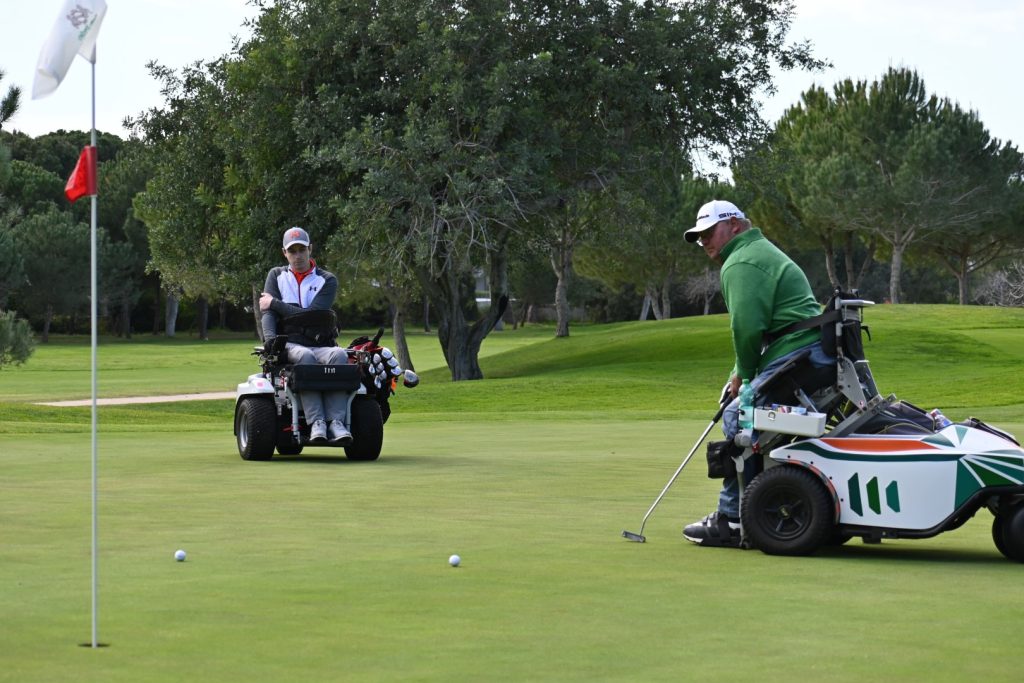
“It was very difficult because I was the only one in the town. I was the only one – I don’t know – in an area of 20 kilometres in a wheelchair. An exotic guy. I remember in the first few months, you always think everyone is looking at you, and they seem to say, ‘Oh, I’m so sorry… you’re in a wheelchair.’” But gradually, people began to accept and see Christian the person again, not just the guy in the chair.
In terms of the golf community, Christian hasn’t encountered much in the way of discrimination, while his home club was also very encouraging when he was trialling and improving the early ParaGolfers; when he was “King of the Road”, as he jokes. He says: “I never met anyone on the golf course, right up until today, who says I don’t want a wheelchair user or a disabled guy in a wheelchair. Especially in my golf club, never. But also on any golf courses around the world. Never.”
This settled environment clearly inspired Christian to make the most of his talent on the fairways and greens, winning the German championship seven times and a European title, while also beating Tiger Woods, once… For the last 17 years Christian has been the Players’ Captain of the Handicapped Golf Club of Germany. He is at home with the family feel of his club and recounts a time when he was playing the 18th hole recently. “I had a chip to the flag of 20 metres, and I put it to one metre from the flag. There were 20 or 30 people on the terrace and they said, ‘Oh, did you see that, he was the German Champion. It’s so great.’ It’s nice to hear when people talk like this, full of respect instead of saying, ‘Oh, he’s in a wheelchair.’ And I’m always open to them – I go and say, ‘Did you see my chip? It was great, huh? Come over, and we’ll drink a beer.’”
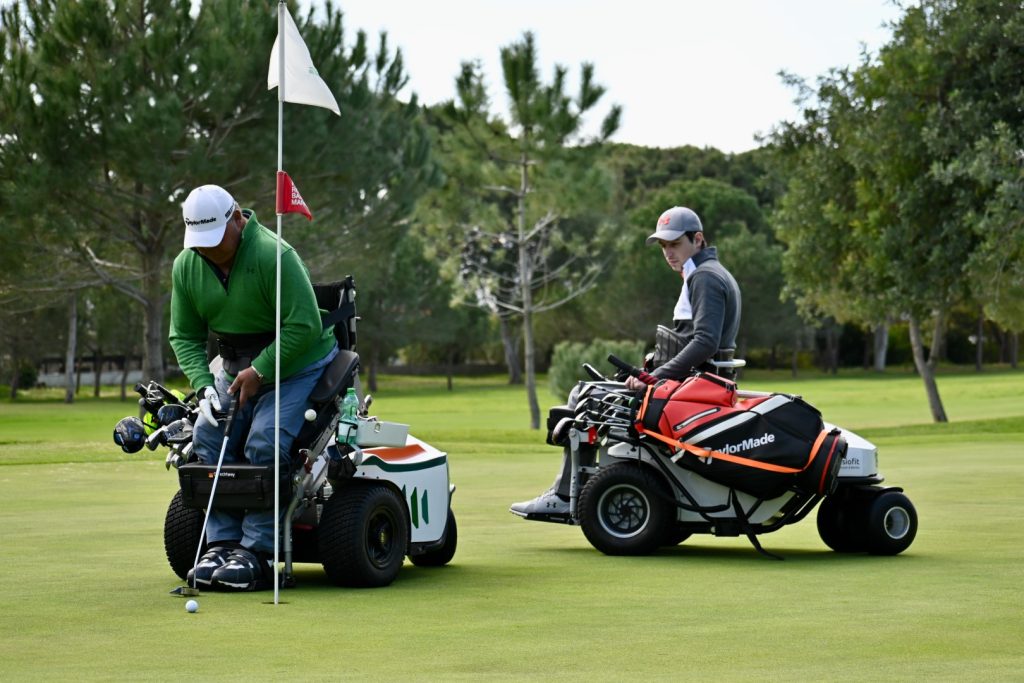
Christian adds: “When you’re open to people, when you’re positive, they are open to you.
You are a part of the game. And after one hole, no one is interested whether you play in a wheelchair, or if you walk. You play your game, that’s it.”
And you didn’t misread, Christian did beat Tiger Woods. The pair were present at a charity event in Hamburg (as part of a European Tour championship in 2004) where selected players fired three shots from a staged tee onto a floating island green. Woods, Justin Rose and Bernhard Langer were representing the tour professionals. Tiger put one in the water and his best shot was around two metres from the flag.
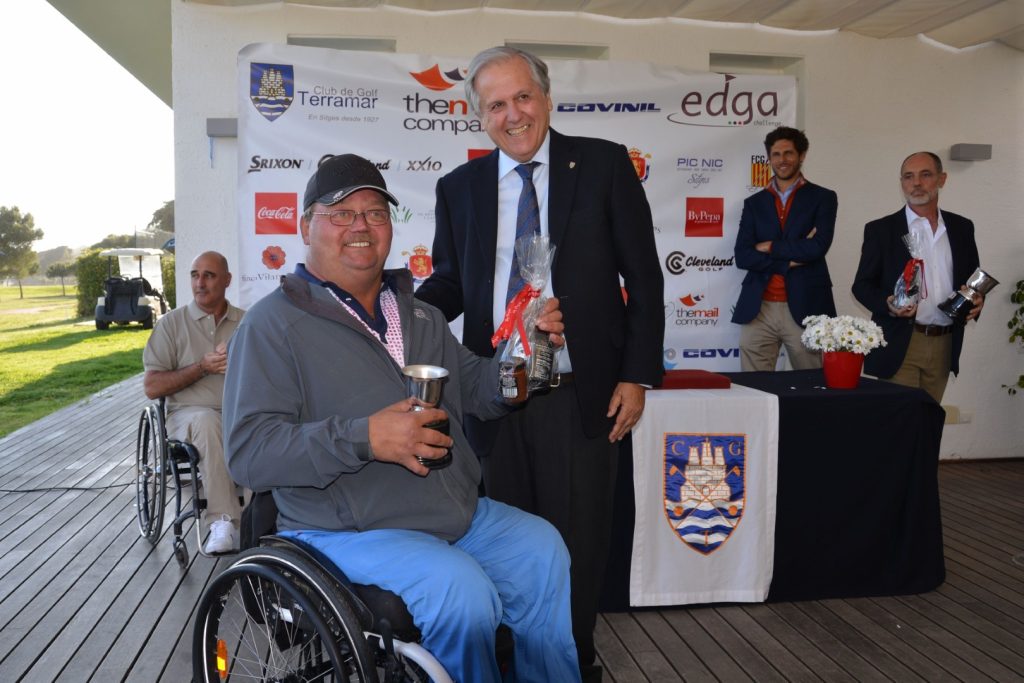
“The winner was Bernhard Langer. Bernhard had put his best shot 50 centimetres from the flag, and I was 1.5 metres to the flag with my best shot. And then Tiger came and congratulated me. I shook his hand. It was a great feeling, my biggest victory.”
We asked what advice Christian would give to someone else who had just been through a similar medical trauma and resultant disability.
“It’s difficult, because everyone is different. It’s hard to say, ‘Come on everyone, you must look forward and find your way. You can have a good life in a wheelchair.’ But I can always tell people that in my case it’s always 50%. 50% a better life, a more interesting life, and 50% a poorer life. You need to say it’s ‘five times more’ than for a normal walking person. When you go in the car, when you go in the bath, everywhere, it’s five times more. But in my case, it’s 50% more interesting. Because of my disability, I saw the world. We travel around the world with EDGA playing tournaments. You find friends around the world.”
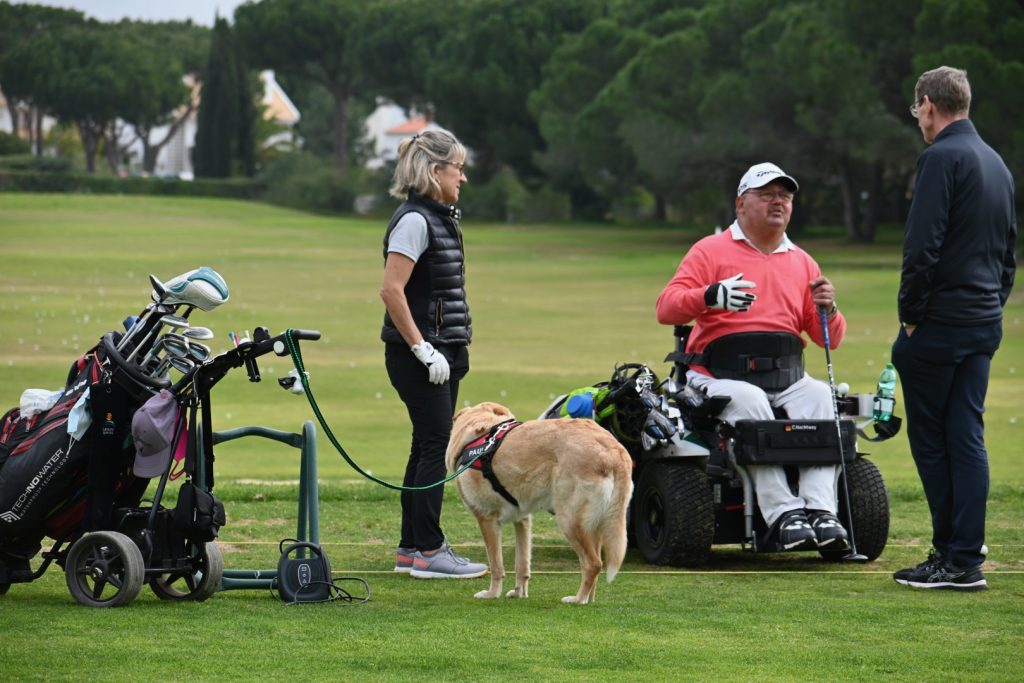
That advice may be practical, what follows is more philosophical. “Open your mind. Try to enjoy your life, enjoy the moment. What can you expect in your situation? Regardless of golf, what can you expect [in terms of] good things, and yet don’t dwell on the bad things. Enjoy the moment when the sun comes up, and you are anywhere in a good place. If it’s warm, enjoy this single second. That is for me, the most important thing. When you find just small moments, when you say or you feel, ‘That was a happy moment.’”
Happy moments. Christian recalls making a bet with a friend about losing weight and their reward would be a holiday to San Francisco via New York. Once in California, the two friends lived the dream, heading into ‘Cisco’ in a Mustang V8, driving over the Golden Gate Bridge in the early morning with the sun coming up, with Christian playing an old German song on the harmonica.
“These are the moments you can remember for the rest of your life. Try to find these moments. That’s what I can say to those people.”
Contact EDGA
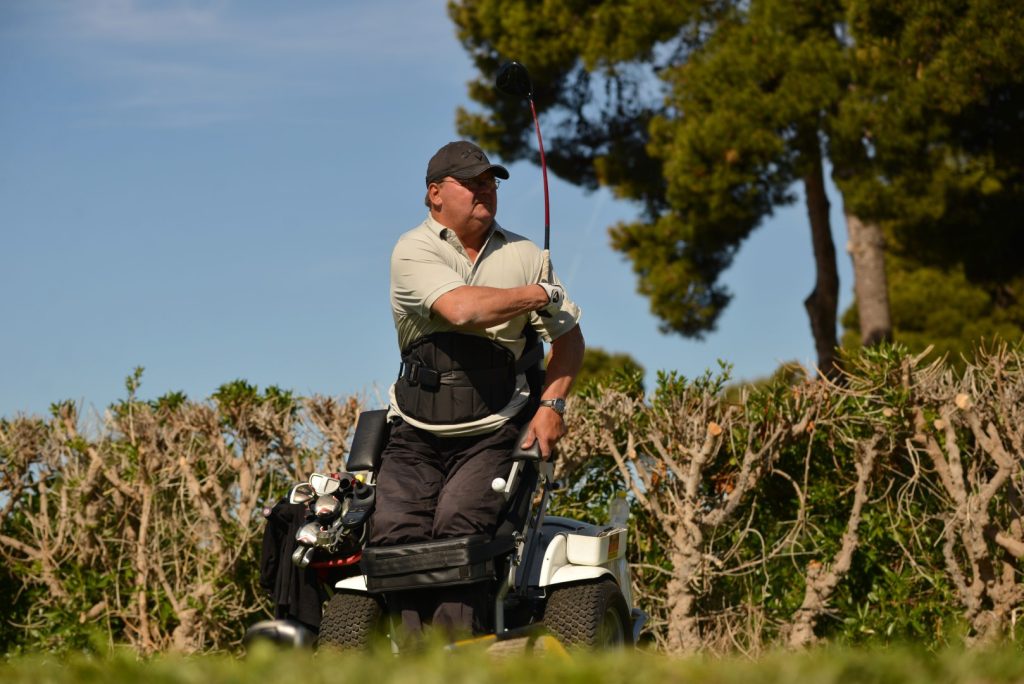
NB: When using any EDGA media, please comply with our copyright conditions


